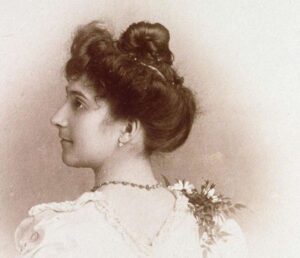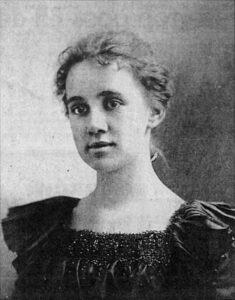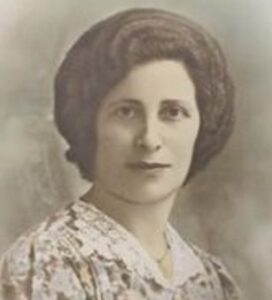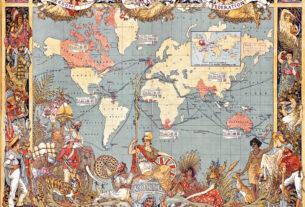The quest to understand human longevity has long fascinated researchers and the public alike. Among the many remarkable individuals who have defied the usual boundaries of age, a few stand out for their extraordinary lifespans. These individuals not only lived well into their centenarian years but surpassed them, reaching ages that few can imagine. Their lives offer invaluable insights into the factors contributing to extreme longevity, from genetics and lifestyle to resilience and adaptability.
Exploring the lives of some of the oldest people ever recorded provides a glimpse into the diverse paths that can lead to such impressive lifespans. Each person’s story is unique, marked by personal experiences and historical contexts that shape their journey through the decades. From Jeanne Calment, who lived to an unprecedented 122 years, to Emma Morano, the last person born in the 19th century, their lives reveal the potential for human endurance and the complexities of aging. These individuals not only represent the pinnacle of human longevity but also inspire ongoing discussions about what contributes to a long and healthy life.
1. Jeanne Calment
Jeanne Louise Calment holds the record as the oldest verified person ever to have lived, reaching the extraordinary age of 122 years and 164 days. Born on February 21, 1875, in Arles, France, Calment’s life spanned a remarkable period of history, from the late 19th century into the early 21st century. Her longevity is well-documented and has been a subject of significant interest and study in the fields of gerontology and aging.
Throughout her long life, Jeanne Calment experienced numerous historical events, including two World Wars and the rapid advancements of the 20th century. She led a relatively privileged life, living in Arles, where she enjoyed a comfortable lifestyle with the help of servants. Calment was known for her engaging personality, and she pursued various hobbies such as playing the piano and painting. She continued to actively participate in her community and maintain a positive outlook, which contributed to her extended lifespan.
Calment’s longevity was attributed to a combination of genetic factors and lifestyle choices. Her family had a history of longevity, with many relatives living into their 90s. Her diet was also considered to be part of her longevity secret, as she consumed a diet rich in olive oil, which is known for its health benefits. Additionally, Calment’s optimistic demeanor and active lifestyle were thought to play a role in her remarkable age.
Jeanne Calment passed away on August 4, 1997, at the age of 122. Her record stands as a testament to the potential for human longevity and has provided valuable insights into the factors that contribute to extreme old age. Her life remains an inspirational example of how a combination of genetics, lifestyle, and attitude can influence the length of one’s life.

(picryl.com)
2. Kane Tanaka
Kane Tanaka was a remarkable individual who achieved the status of the second oldest person in the world. Born on January 2, 1903, in Fukuoka, Japan, Tanaka’s life extended into her 119th year, making her one of the oldest recorded people in history. Her longevity was recognized officially by Guinness World Records in March 2019, highlighting her extraordinary lifespan and the cultural and historical changes she witnessed over her lifetime.
Kane Tanaka’s life was marked by significant personal and historical challenges. She married Hideo Tanaka and had several children, although she experienced the grief of losing some of her children before her. Her life during World War II was particularly difficult; she faced hardship as her husband was drafted into the war and one of her sons was kidnapped. Despite these challenges, Tanaka lived a life characterized by resilience and endurance. Her later years were spent in a nursing home in Fukuoka, where she continued to be active and engaged with her surroundings.
Tanaka’s health and longevity were often attributed to a combination of factors including a positive attitude, a balanced diet, and the care and support of her family. She celebrated numerous milestones, including her 117th birthday, during which she tested positive for COVID-19 but made a remarkable recovery, becoming the oldest known survivor of the virus.
Kane Tanaka passed away on April 19, 2022, at the age of 119. Her life provides valuable insights into the factors contributing to extreme longevity, including the importance of family support, resilience, and maintaining a positive outlook. Tanaka’s story remains an inspiring testament to the potential for longevity and the human spirit’s ability to endure through the most challenging of times.

(picryl.com)
3. Sarah Knauss
Sarah Knauss was recognized as the third oldest person ever recorded, having lived an impressive 119 years. Born on September 24, 1880, in Hollywood, Pennsylvania, USA, Knauss’s life spanned a remarkable period of American history, from the late 19th century through the end of the 20th century. Her longevity has made her a notable figure in studies of extreme age and human longevity.
Sarah Knauss married Abraham Lincoln Knauss in 1901, and the couple had one daughter, Kathryn, born in 1903. Kathryn lived a long life herself, passing away in 2005 at the age of 101. Sarah’s husband Abraham passed away in 1965 at the age of 86. Sarah Knauss spent most of her life as a homemaker, living through significant historical events, including two World Wars and the Great Depression. Her ability to maintain good health and a positive outlook throughout these changes is often attributed to her longevity.
Knauss’s extended lifespan was marked by a clear-minded and energetic disposition well into her later years. In 1998, she was recognized by the Guinness World Records as the world’s oldest living person at the age of 117. Her life exemplified the combination of genetic factors, lifestyle choices, and environmental conditions that can contribute to extreme longevity.
Sarah Knauss passed away on December 30, 1999, at the age of 119, just a few months shy of her 120th birthday. Her life offers valuable insights into the factors that contribute to exceptional age, including the importance of family, resilience, and a positive attitude toward life. Knauss’s story remains an inspiring example of the potential for human longevity.

(en.wikipedia.org)
4. Lucile Randon

(en.wikipedia.org)
5. Marie Louise Febronie
Marie Louise Fébronnie was an exceptional individual known for her remarkable longevity, having lived to the age of 115 years. Born on October 15, 1875, in Saint-Denis, France, Fébronnie’s long life spanned an extraordinary period of global events and societal transformations, offering a fascinating glimpse into the past.
Marie Louise married early in life and raised a family, although detailed records about her marriage and children are limited. Her later years were marked by both personal and historical milestones, including two World Wars and significant changes in French society. Fébronnie’s ability to adapt and thrive through such tumultuous times is a testament to her resilience and strength.
In her advanced age, Marie Louise Fébronnie was known for her sharp mind and vitality, which she maintained well into her later years. Her longevity was attributed to a combination of genetic factors, a healthy lifestyle, and the support of her family. She was cared for by her loved ones during her final years, reflecting the importance of family support in achieving extreme age.
Marie Louise Fébronnie passed away on January 9, 1991, at the age of 115. Her life remains a significant example of exceptional longevity, offering insights into the factors that contribute to living a long and fulfilling life. Her story is a reminder of the remarkable potential for human longevity and the role of personal and familial resilience in achieving it.

(gerontoly.fandom.com)
6. Emma Morano
Emma Morano was recognized as the world’s oldest living person before her death and the last living person born in the 1800s. Born on November 29, 1899, in Villanova d’Ardenghi, Italy, Morano lived an impressive 117 years and 137 days. Her long life spanned three centuries, witnessing significant historical events and changes in the world.
Morano’s longevity has been attributed to a combination of genetic factors and a distinctive lifestyle. She lived through two World Wars, the rise and fall of numerous political regimes, and the technological and cultural shifts of the 20th and 21st centuries. Despite these challenges, Morano maintained a relatively simple lifestyle and was known for her unique dietary habits. She was famous for her consumption of a diet that included a large amount of raw eggs, which she believed contributed to her health and longevity.
Throughout her life, Emma Morano remained relatively active and independent. She lived alone in her apartment until the age of 117, when she moved to a nursing home. Her independence and strong will were often highlighted as factors contributing to her long life. Her family, including her niece, played a significant role in supporting her well-being and care.
Emma Morano passed away on April 15, 2017, at the age of 117. Her life offers valuable insights into human longevity, including the influence of both genetics and lifestyle choices. Morano’s extraordinary age makes her a significant figure in studies of aging and provides a fascinating example of the potential for human longevity. Her story continues to inspire and intrigue those interested in understanding the factors that contribute to extended lifespan.

(en.wikipedia.org)
Conclusion,
The stories of some of the oldest people ever recorded offer more than just awe-inspiring numbers—they provide profound insights into the nature of human longevity and resilience. From Jeanne Calment’s remarkable 122 years to Emma Morano’s role as the last living person born in the 19th century, these extraordinary individuals exemplify the potential for a long and fulfilling life. Their experiences highlight the intricate interplay of genetics, lifestyle choices, and personal attitude in achieving extreme longevity.
As we continue to study and learn from these remarkable lives, we gain valuable knowledge about the factors that contribute to extended lifespans and the qualities that define a life well-lived. Their stories not only inspire us but also challenge us to consider how we might apply their lessons to enhance our own health and longevity. In exploring their lives, we not only celebrate their achievements but also deepen our understanding of the human capacity to thrive across the ages.



